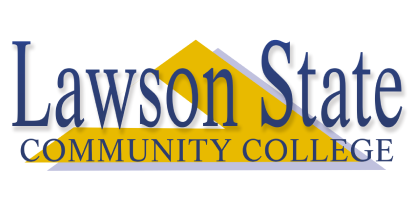
Course Descriptions - Emergency Medical Service
Cardiopulmonary Resuscitation
Pre-requisite: None
Co-requisite: None
This course provides students with concepts as related to areas of basic life support to include coronary artery disease, prudent heart living, symptoms of heart attack, adult one-and-two rescuer CPR, first aid for choking, pediatric basic life support, airway adjuncts, EMS system entry access, automated external defibrillation (AED), and special situations for CPR. Upon course completion, students should be able to identify situations requiring action related to heart or breathing conditions and effectively implement appropriate management for each condition. Students successfully completing this course will receive appropriate documentation of course completion.
Credit hours: 1
Contact hours: 1
Cardiopulmonary Resuscitat II
Pre-requisite: None
Co-requisite: None
This course provides students with a review of concepts learned in EMS 100. In addition, the course provides the student with theory and application of airway adjuncts as utilized with airway obstruction and maintenance as well as respiratory and cardiac arrest. Assessment and management of acute ischemic stroke will also be included. Upon course completion, students should be able to identify situations requiring action related to heart or breathing conditions and effectively implementing appropriate management for these conditions. Students successfully completing this course will receive appropriate documentation of course completion. Prerequisite(s): EMS 100 or program approval
Credit hours: 1
Contact hours: 1
First Aid
Pre-requisite: None
Co-requisite: None
This course introduces students to initial first aid care. Topics include scene safety, universal precautions, activation of the EMS system, assessment, airway/breathing/circulation, shock/injuries/bleeding, medical emergencies, and altered level of consciousness. Upon course completion, students should have knowledge to manage various emergencies requiring first aid techniques.
Credit hours: 1
Contact hours: 1
First Responder
Pre-requisite: None
Co-requisite: None
This course provides theory in emergency procedures as contained in the current National Standard Training Curriculum (NSTC) for the First Responder. The course is an introduction to the emergency medical services system and provides fundamentals for students to improve the quality of emergency care provided as the first person to an emergency scene until emergency medical services arrive. Completion of specific student competencies, as outlined in the current NSTC for the First Responder, is required for successful course completion
Credit hours: 3
Contact hours: 3
Emer Vehical Oper Ambulance
Pre-requisite: None
Co-requisite: None
The Emergency Vehicle Operator Course - Ambulance provides the student with training as contained in the current National Standard Training Curriculum (NSTC) for the Emergency Vehicle Operator Course (EVOC) Ambulance. The course provides the knowledge and skill practice necessary for individuals to learn how to safely operate all types of ambulances. Topics include introduction to the NSTC for ambulance operators; legal aspects of ambulance operation; communication and reporting; roles and responsibilities; ambulance types and operation; ambulance inspection, maintenance, and repair; navigation and route planning; basic maneuvers and normal operating situations; operations in emergency mode and unusual situations, special considerations in safety; and the run. Completion of specific student competencies, utilizing NSTC guidelines, are required for successful completion of this course. NOTE: To qualify for licensure status as an ambulance driver in the State of Alabama, students must successfully complete this course and meet additional requirements as required by the Alabama Department of Public Health.
Credit hours: 1
Contact hours: 1
Emergency Medical Technician
Pre-requisite: None
Co-requisite: None
This course is required to apply for certification as an Emergency Medical Technician. This course provides students with insights into the theory and application of concepts related to the profession of emergency medical services. Specific topics include: EMS preparatory, airway maintenance, patient assessment, management of trauma patients, management of medical patients, treating infants and children, and various EMS operations. This course is based on the NHTSA National Emergency Medical Services Education Standards.
Credit hours: 9
Contact hours: 12
Emergency Med Tech Clinical
Pre-requisite: None
Co-requisite: None
This course is required to apply for certification as an EMT. This course provides students with clinical education experiences to enhance knowledge and skills learned in the EMS 118, Emergency Medical Technician Theory and Lab. This course helps students prepare for the National Registry Exam.
Credit hours: 1
Contact hours: 3
Advance Emergency Med Tech
Pre-requisite: None
Co-requisite: None
This course is required to apply for certification as an Advanced Emergency Medical Technician (AEMT). This course introduces the theory and application of concepts related to the profession of the AEMT. The primary focus of the AEMT is to provide basic and limited advance emergency medical care and transportation for critical and emergent patients who access the emergency medical system. This individual possesses the basic knowledge and skills necessary to provide patient care and transportation. Topics include: extending the knowledge of the EMT to a more complex breadth and depth, intravenous access and fluid therapy, medication administration, blind insertion airway devices, as well as the advanced assessment and management of various medical illnesses and traumatic injuries. This course is based on the NHTSA National Emergency Medical Services Education Standards. Requires licensure or eligibility for licensure at the EMT level and EMS 156 must be taken as a co-requisite.
Credit hours: 7
Contact hours: 10
Advanced Med Emerg Tech Clinic
Pre-requisite: None
Co-requisite: None
This course is required to apply for certification as an Advanced Emergency Medical Technician (AEMT). This course provides students with clinical education experiences to enhance knowledge and skills learned in EMS 155. This course helps prepare students for the National Registry AEMT exam. The student will have the opportunity to use the basic and advanced skills of the AEMT in the clinical and field settings under the direct supervision of licensed healthcare professionals. Requires licensure or eligibility for licensure at the EMT level and EMS 155 must be taken as a co-requisite.
Credit hours: 2
Contact hours: 6

